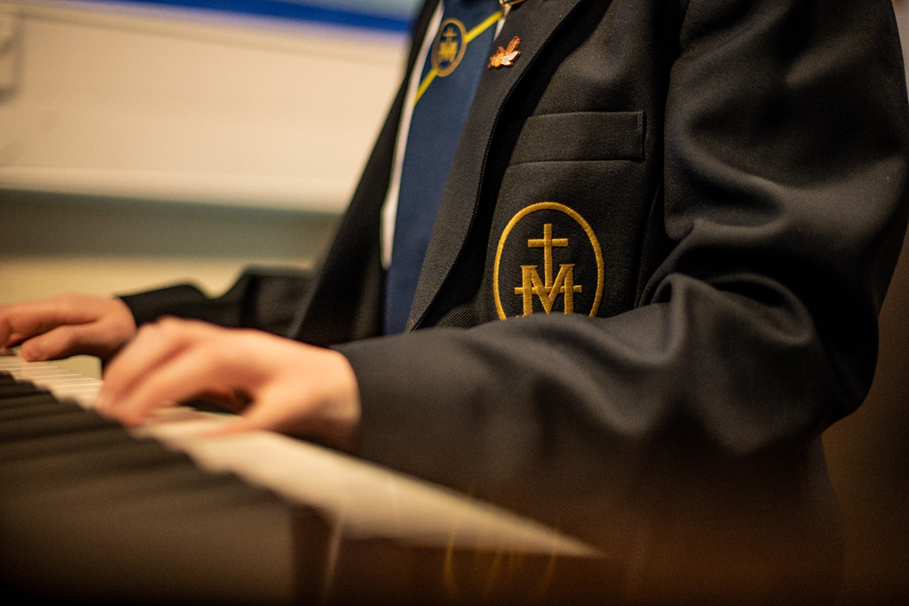Music Curriculum
KS3
At KS3 students develop their skills and knowledge of music through a programme of learning that accesses different instruments and musical styles through performing, composing and appraising music. Examples of instruments used at KS3 are voice, keyboards, West African Drums, Samba percussion and ukuleles. Students are also able to learn how to use Garage Band to create their own music on our imac’s in the department.
Units of work are carefully planned to gradually introduce and develop skills and knowledge, using different musical styles and concepts to revisit the musical elements.
In year 7 all students will be given the opportunity to try a lesson on a musical instrument of their choice, many then choose to pursue instrumental lessons which they can then use in curriculum lessons, and join an ensemble.
Quotes from year 7
“Music is one of my favourite classes, especially because we get to play on different instruments like keyboard and samba drums” Oscar
“Music is really fun, so many things to do! Piano, samba and so many fun music games” Sammy
“Music is amazing as it is fun when you learn instruments like keyboards and it just makes your day much better and joyful” Dom
“I find doing the practical African drumming, Samba and keyboard really exciting and thrilling. Music is always a subject I look forward to” Grace
KS4
At KS4 students can opt to study GCSE music (Eduqas). The GCSE course allows students to study a wide variety of genres in greater depth, gaining a deeper understanding of how music is created using the musical elements and how they can in turn use them to create their own compositions. Students develop their performance skills on instruments of their choice, with many opportunities to work independently and in groups.
The GCSE course contains 60% coursework. Students will compose two pieces of music, and perform a solo and ensemble piece by the end of year 11. The remaining 40% will be assessed through an exam sat at the end of year 11 where students will listen to music and answer a variety of questions.
The areas of study covered are Forms and Devices (classical), Ensemble Music (Musical Theatre, Jazz and Chamber Music), Film Music and Pop Music (pop, rock and fusion).
